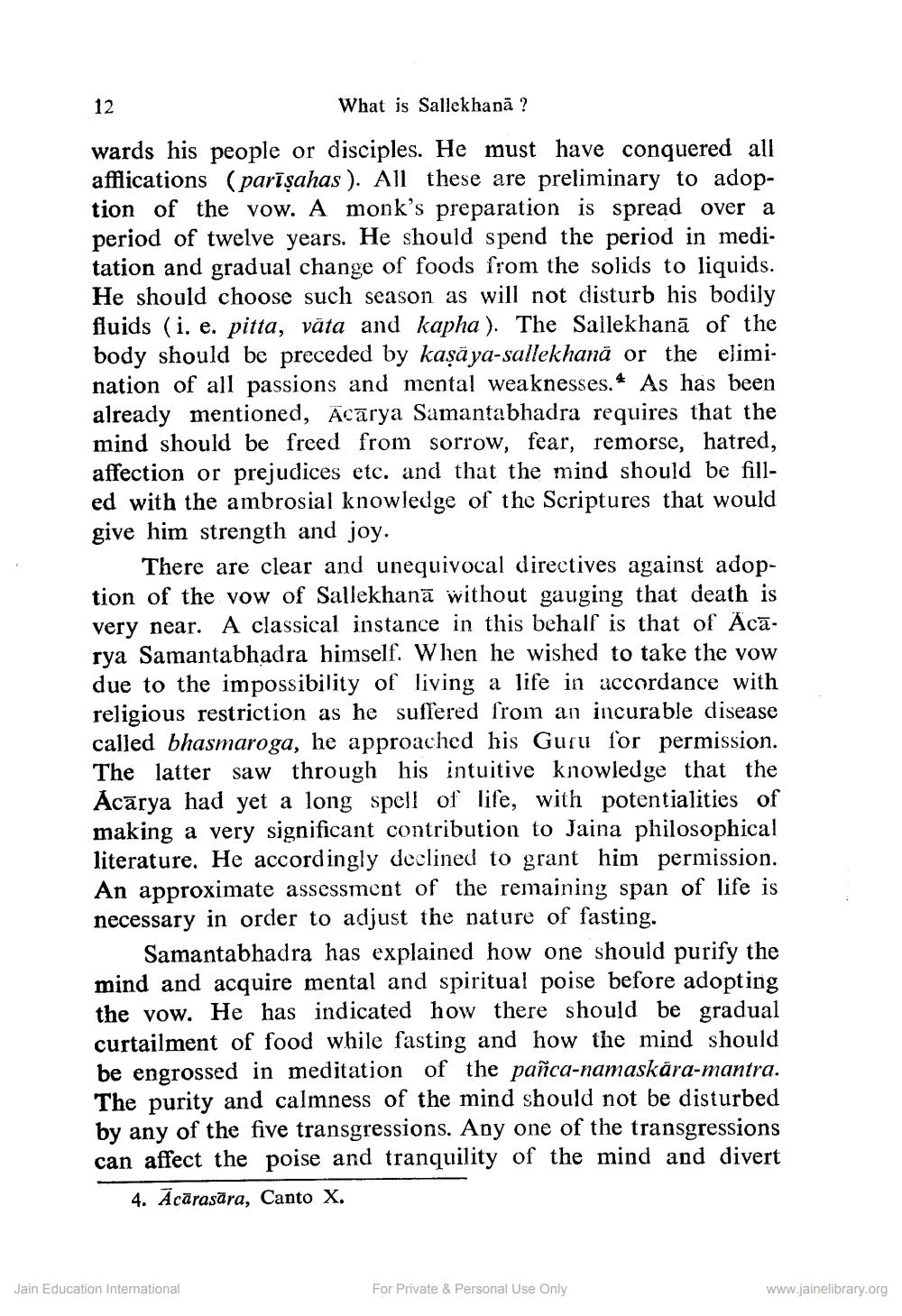________________
12
What is Sallekhanā ?
wards his people or disciples. He must have conquered all afflications (parīşahas ). All these are preliminary to adoption of the vow. A monk's preparation is spread over a period of twelve years. He should spend the period in meditation and gradual change of foods from the solids to liquids. He should choose such season as will not disturb his bodily fluids (i. e. pitta, väta and kapha). The Sallekhanā of the body should be preceded by kaşāya-sallekhanä or the elimination of all passions and mental weaknesses. As has been already mentioned, Acarya Samantabhadra requires that the mind should be freed from sorrow, fear, remorse, hatred, affection or prejudices etc. and that the mind should be filled with the ambrosial knowledge of the Scriptures that would give him strength and joy.
There are clear and unequivocal directives against adoption of the vow of Sallekhanā without gauging that death is very near. A classical instance in this behalf is that of Acārya Samantabhadra himself. When he wished to take the vow due to the impossibility of living a life in accordance with religious restriction as he suffered from an incurable disease called bhasmaroga, he approached his Guru for permission. The latter saw through his intuitive knowledge that the Acārya had yet a long spell of life, with potentialities of making a very significant contribution to Jaina philosophical literature. He accordingly declined to grant him permission. An approximate assessment of the remaining span of life is necessary in order to adjust the nature of fasting.
Samantabhadra has explained how one should purify the mind and acquire mental and spiritual poise before adopting the vow. He has indicated how there should be gradual curtailment of food while fasting and how the mind should be engrossed in meditation of the pañca-namaskāra-mantra. The purity and calmness of the mind should not be disturbed by any of the five transgressions. Any one of the transgressions can affect the poise and tranquility of the mind and divert
4. Ācārasāra, Canto X.
Jain Education International
For Private & Personal Use Only
www.jainelibrary.org




